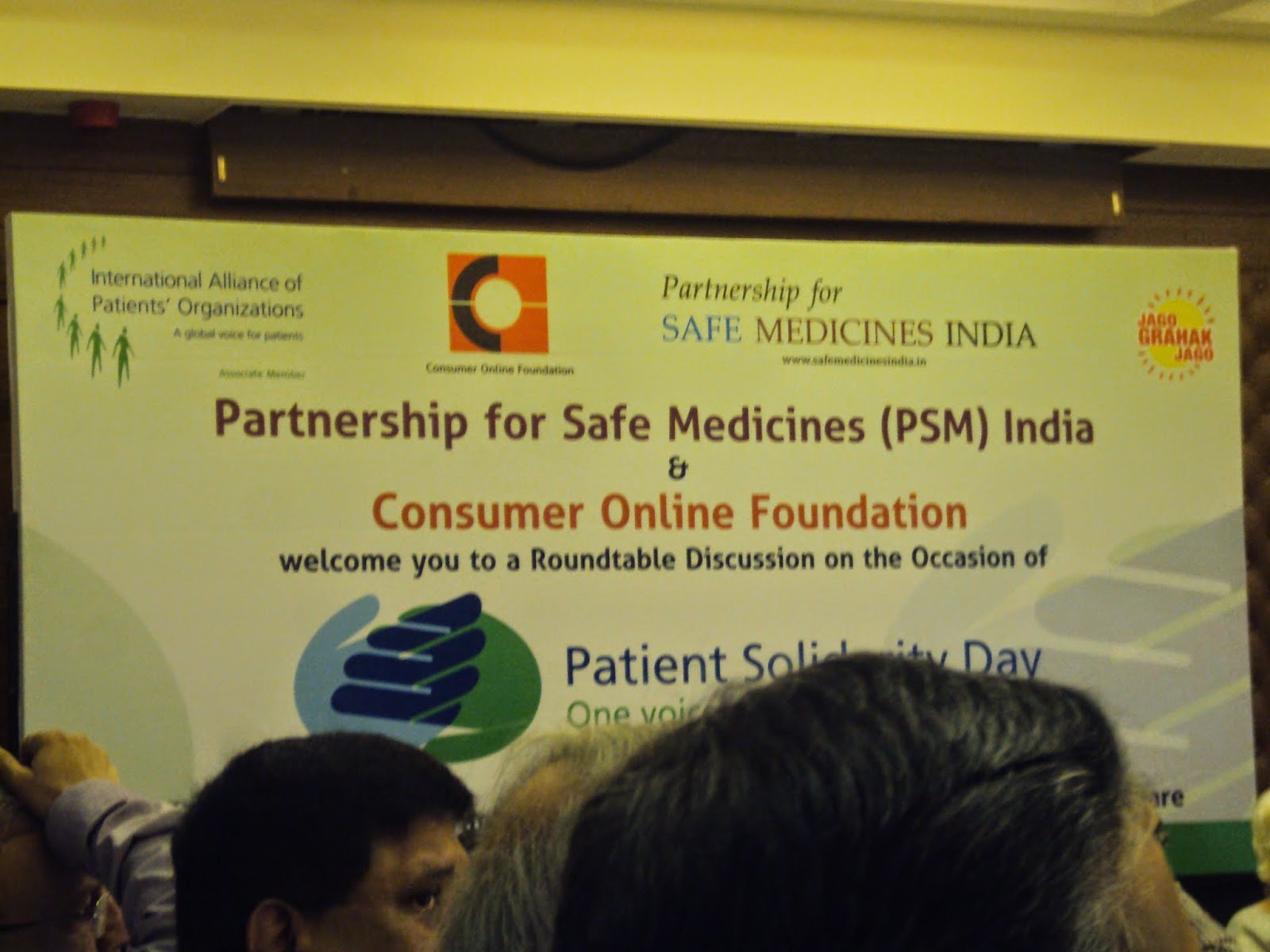One Tuesday afternoon, a round table conference and a room full of enthusiasts is what was The Patient Solidarity Day celebration all about.
When I was on my way to attend it my mind was full of questions – what, how etc. But just 10 minutes in the room and all my doubts vanished into the thin air. For in those ten minutes I realized the power that the room held. The people who were sitting around me were fighters in their own way and that is what made them take up this cause of ensuring quality health services to one and all so strongly.
I was surrounded by people from various sects of medicine field – doctors, pharmacists, pharma company manufacturers, medical representatives, leaders of various NGOs, researchers and of course the patients ; each one of them lending a unique voice to the whole occasion making it more interesting with every passing minute!
The session started with a very startling revelation, “There is no country in this world that has perfect medical facilities. It is just about being better than the other.” And this set the tone for the whole discussion as each one of us wanted to ensure that though our country might not have perfect medical facilities but we definitely wanted to be the best than the rest. As rightly pointed out by one patient, “We do not want be compared with countries like Bangladesh. We want to raise our standards to a level where we can be compared with the likes of a USA or Canada.”
Many illnesses like fibromyalgia, multiple sclerosis, schizophrenia were discussed making it evident, there were miles to go before we sleep. The journey had just begun. As patients shared their stories, narrating experiences of how some illness took months and years to get detected creating irrevocable damage to the system and even once detected the medication was more symptomatic rather than curing the main illness leading to temporary relief it made me wonder how far are we from our destination; the destination being a country where healthy citizens lead to a healthy country.
For a moment there was complete chaos in the room with each one trying to make their point heard and express how they felt someone in this whole chain was responsible. And that is when someone said,” It is about US, not about you or me. The day we begin to think like this is when the change will begin to happen too.” What followed was silence, in acceptance to what was said. So easily said the sheer truth and how seldom remembered.
A lot of suggestions were shared; lot of ideas bounced around, some negligent cases noted and most importantly some firm stands taken. As Bejon Misra rightly said, “What all is shared here, not only remains amongst us but will also be acted upon. We will not shy away from taking the legal course if needed to ensure these voices reach the right ears.” His words were like the much needed consolation to one and all.
This was a meet which reinstated to me that before we all scream asking for better government, better rules, better facilities, better this, better that- we all need to be better human beings first. Do our own bit and then see how far our voices can reach.




